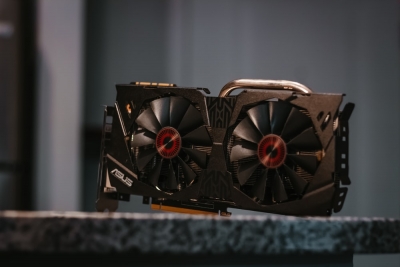Gaming is a continuously evolving landscape. From the days of basic arcade games to the high-definition realms of multiplayer online battle arenas (MOBAs), the industry has come a long way. Interestingly, while MOBAs strive to achieve a sense of competitive balance, other areas in gaming have developed in a different direction. Casino games depend less on skill and more on chance yet the number of new slot sites UK show that this form of gaming is just as popular. However, the gap between these two seemingly disparate forms of entertainment is closing, thanks to the incorporation of slot mechanics into MOBAs.
The Mechanics: A Crossover between Luck and Skill
In a MOBA, you generally expect skill-based gameplay where strategy, team coordination, and quick reflexes are rewarded. However, the inclusion of slot mechanics has introduced an element of unpredictability into the equation. This comes in the form of random loot boxes or other chance-based rewards that players can earn or purchase. In essence, these mechanics borrow from the world of casino gaming to offer an additional layer of excitement, albeit one dependent on luck.
The Economics: A Profit-Driven Move?
While some players enjoy the thrill of uncertain rewards, others question the intentions behind this shift. At the core of the argument is the financial model. Slot mechanics can be enticing for players, leading them to spend more on in-game purchases. This has a direct impact on the revenue generated by these games, which might explain why developers are keen on incorporating such features. Moreover, these mechanics often find themselves under scrutiny for resembling gambling, raising ethical and sometimes legal concerns.
Skill vs Luck: The Great Debate
A significant point of contention is the balance between skill and luck. In traditional MOBAs, players often invest hours to hone their abilities. Introducing luck-based rewards can be a dampener for these individuals, as they feel it diminishes the importance of skill. On the other hand, casual players may find these mechanics more inviting. It allows them an opportunity for high-value rewards without necessarily having to be highly skilled at the game.
Societal Implications: Beyond the Game
These changes are not occurring in isolation. They reflect a broader trend of how games influence behavior and expectations. For instance, the 'surprise' factor in receiving a random item can trigger dopamine releases similar to gambling activities. This has led to a call for stricter regulations on games incorporating such mechanics, especially those accessible to younger audiences.
An Altered Landscape: Where We're Headed
As MOBAs continue to borrow from the casino gaming model, what does this mean for the future? First, this trend could diversify the types of players attracted to these games. Those who enjoy luck-based activities might find themselves drawn to titles they wouldn't have considered otherwise. However, there's a risk of alienating the core audience who value skill-based rewards. It's a fine line that developers will need to tread carefully.
In the longer term, it might also lead to a reevaluation of what constitutes skill and competition in video games. As these boundaries blur, games could become a more eclectic mix of various elements, catering to an even broader audience.
The Afterword: A Lasting Impact
So, have slot mechanics fundamentally altered the MOBA industry, or are they just a passing fad? The truth probably lies somewhere in between. These mechanics have undeniably made a mark, opening up new avenues of revenue and broadening the player base. However, there is ongoing debate over whether this is beneficial for the genre as a whole, and what it means for the long-term integrity of these games. Whether you view this development as a blessing or a curse largely depends on what you value more: skill or the thrill of unpredictability. Either way, it's an interesting development that's unlikely to disappear anytime soon.






